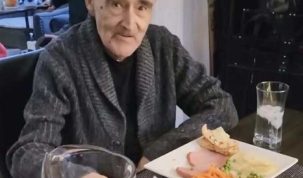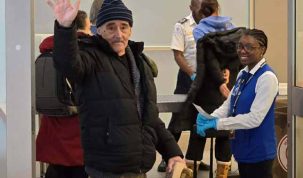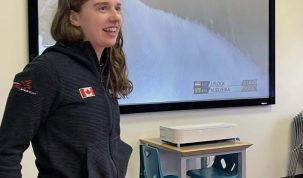By Cecilia Nasmith/Today’s Northumberland
The local health unit is adjusting some of its COVID response processes in light of a recent spike in area COVID-19 cases.
Dr. Natalie Bocking, Medical Officer of Health for the Haliburton, Kawartha, Pine Ridge District Health Unit Medical Officer of Health Dr. Natalie Bocking said in a recent press release that the latest increases in cases has stretched the capacity of their staff, and the organization has had to change some processes to balance the work involved with new cases while continuing to offer mass-immunization clinics in the communities.
“We are having to make some changes to ensure we have staff coverage in the areas most impacted right now,” Dr. Bocking said.
“With the expansion of the eligibility for booster doses and the identification of the Omicron variant in the province, we are seeing a high demand at our clinics. This, coupled with the surge in cases we have seen recently, has forced us to do things a little differently.”
Since Friday, the health unit has been notified of 56 confirmed cases of residents in the region, while they continue to staff mass-immunization clinics and investigate six community COVID-19 outbreaks.
As a result, the following changes are being made.
Mass immunization clinics – Beginning Dec. 16, the health unit will no longer accept walk-ins at any of these clinics, a change from their policy of allowing walk-ins during the last hour of each session. With increased demand for third doses, they can no longer accommodate walk-ins. Additional appointments are being added to clinics, and residents are strongly encouraged to book an appointment for their first, second and third doses through the provincial booking system at https://covid-19.ontario.ca/book-vaccine/ or by calling 1-833-943-3900 (TTY for people who are deaf, hearing-impaired or speech-impaired: 1-866-797-0007). As well, anyone interested in receiving a third dose of vaccine can also reach out to their local pharmacies or primary health care provider.
High-risk contact – Anyone identified as a high-risk contact of a confirmed case in a school setting will now receive a letter outlining quarantine and testing requirements. Health unit staff will continue to contact individuals who are confirmed cases directly. Additional information for high-risk contacts is available on the health unit website at www.hkpr.on.ca. As cases continue to surge, the health unit will continue to communicate what type of communications high-risk contacts can expect to receive.
Non-COVID programming – With an increase in cases, the health unit has also taken some non-COVID programming back offline. This includes pausing sexual health clinics, no-doctor vaccination clinics for children, Healthy Babies Healthy Children programming and some inspection services. Staff from these programs have been redeployed back to clinics or case investigation.
While she understands that everyone is tired of COVID-19 and looking forward to the holidays, Dr. Bocking urges people to continue to follow public health practices and get vaccinated to help protect themselves, their families and their communities from further spread of the virus. This means:
· Staying home if ill.
· Getting vaccinated and getting a booster dose once eligible.
· Continuing to keep a distance of more than six feet between yourself and others outside of household family members.
· Keeping holiday get-togethers small and safe this season.
· Wearing a tightly fitting face mask when out in public, or when you are unable to maintain a six feet distance from others when outdoors.
– Washing your hands thoroughly and frequently with soap and water.
· Covering your coughs and sneezes with a tissue. Dispose of the tissue and wash your hands.
“While we know that some vaccinated individuals can still get COVID, vaccination is still our best tool in helping to decrease the severity of the illness and keeping people out of hospital and the ICU,” Dr. Bocking said.
“Like everyone else, we are tired of COVID, but we need to continue working to get people vaccinated so our health care system does not get overrun this winter.”
























